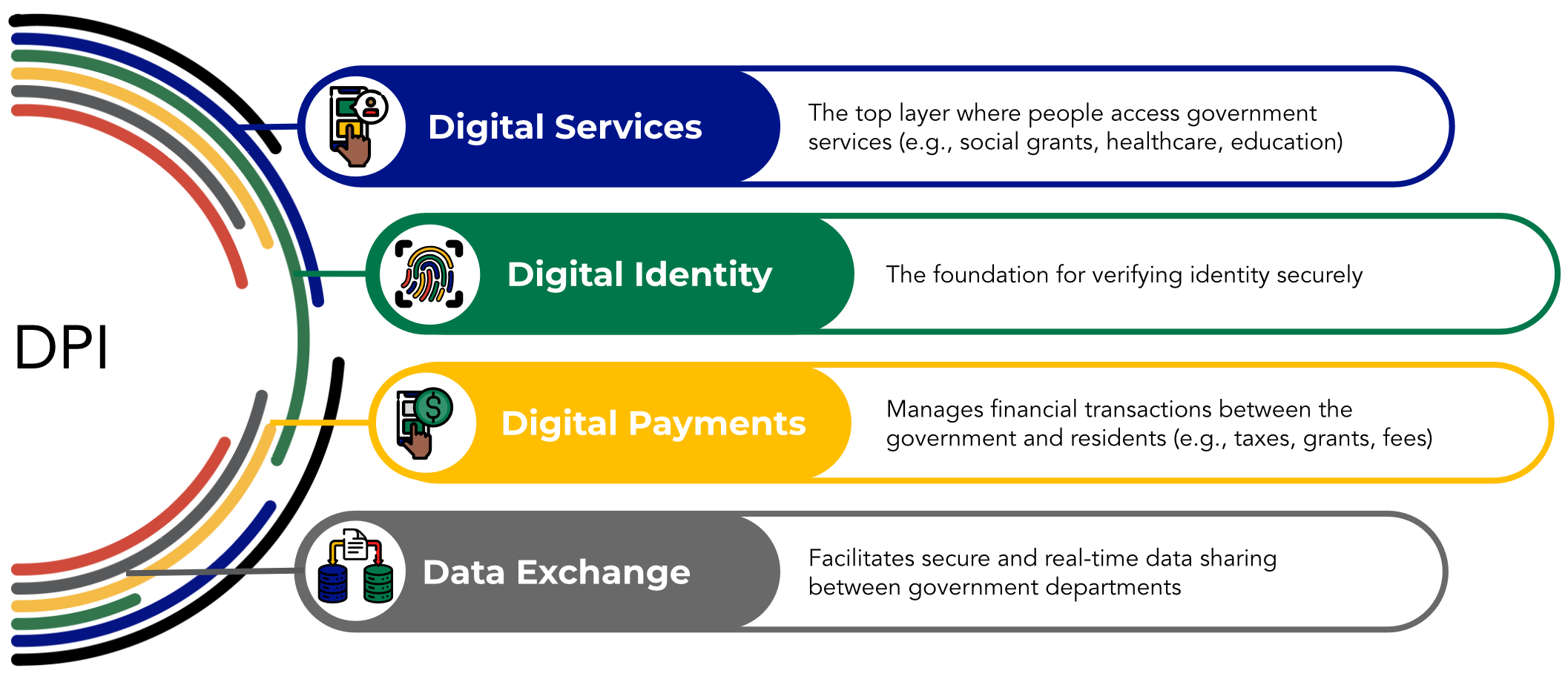What is Digital Public Infrastructure (DPI)?
Our approach embraces the frontier of technology and the approaches taken by leading digital governments.
Peer countries, such as India and Brazil, are developing foundational technologies — known as Digital Public Infrastructure (DPI) — used across multiple government departments to deliver a range of services. The governments in India and Brazil have achieved whole-of-government transformations, delivering services at scale, while ensuring safety, inclusivity and cost-effectiveness.

DPIs are technology building blocks that provide the foundation for government services. This roadmap pursues DPI technologies and a DPI approach. These DPIs are the blocks on which Thandi’s experience is built and can enhance services across a person’s life. The roadmap adopts a number of principles including the United Nations Development Programme DPI Safeguards.
Person Lifecycle of Services

Building a Digital Government
A DPI technology approach is necessary but not sufficient. Transformation requires a focus on high-impact areas. The government is committed to test and scale technologies, as well as safe operation and evolution that matches societal needs. This roadmap charts a new approach to digital transformation in four further ways:
Developing Capabilities for Digital Transformation
The government will establish a Digital Service Unit (DSU), bringing together some of the best talent from inside and outside of the government, under the Presidency.
The DSU will comprise a team of new hires and secondments to drive innovation and deliver shared technologies that support the rest of government.
The roadmap will also strengthen the technical capacity of staff across departments through GITOC and other groups, equipping them to design and deliver services using shared tools and approaches in collaboration with the DSU.
Embracing an Agile and Collaborative Approach
This roadmap will support the rapid scaling of initiatives and support the re-use of technology across government.
It includes piloting new technologies using an agile method in areas where there is an opportunity to innovate.
Where initiatives are not working, they will be stopped.
The DSU will drive innovation in collaboration with departments. Technology standards will be refined to ensure they are fit for purpose.
Unlocking Innovation Through Collaboration
Opportunities to support service delivery will be created for stakeholders, including the private sector, labour, academia, development partners and civil society.
Providing controlled access to government data will stimulate innovation and improve decision-making while ensuring transparency and public engagement.
A dynamic ecosystem will encourage co-creation.
Ensuring Resilience and Sustainability
To support the long-term success of digital transformation, the government will prioritise operational resilience and sustainability. This includes fostering a diverse ecosystem of technologies and service providers to mitigate risks of dependency on a single platform.
By promoting solution and channel diversity, people will have multiple ways to access services, enhancing inclusivity and choice.
The government will emphasise regular maintenance, updates and innovation to ensure systems remain secure, functional, and aligned with evolving societal needs..
